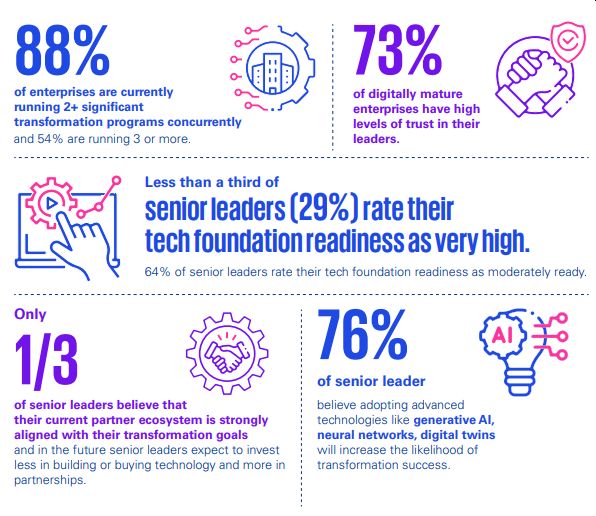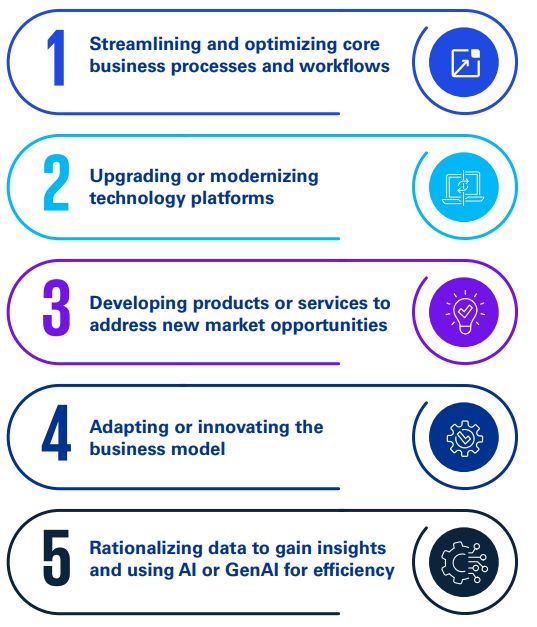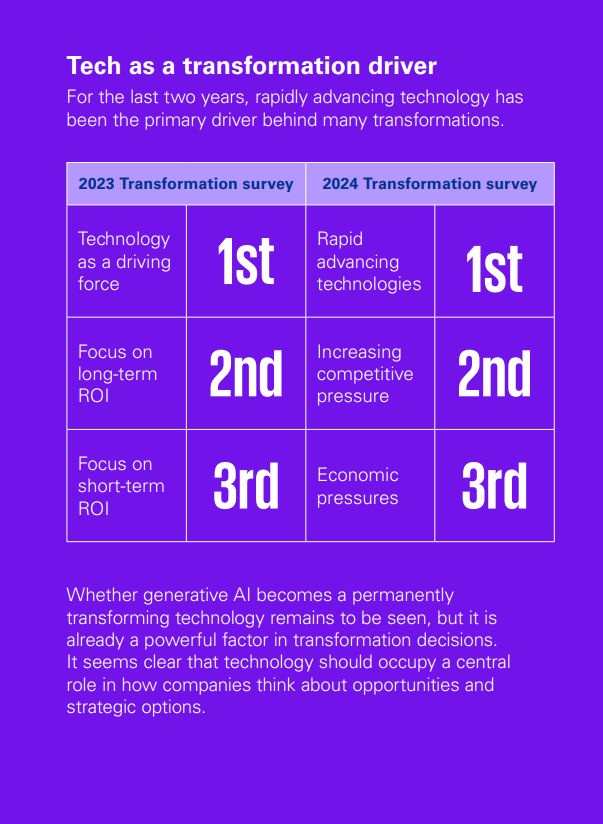- within Environment and Strategy topic(s)
- with readers working within the Business & Consumer Services and Insurance industries
Introduction
New technologies and ever-expanding repositories of data are helping private, public and government enterprises create greater value in nearly everything they do: allocating resources wisely, spotting trends and adjusting forecasts, understanding customers' needs and competitors' strengths and weaknesses, hardening supply chains, identifying and managing risks, helping employees thrive, and creating new products and services.
In this era of rapid advances in artificial intelligence and other digital capabilities, innovative enterprises are constantly evolving their industries, ecosystems, and ways of working to unlock major opportunities. But while technological marvels are as old as humanity, they don't create value on their own. Leadership, sound judgment, and the flexibility to adapt remain essential, along with the confidence to act in an uncertain world.
Enterprises are scrambling to keep up — KPMG's research reveals that 80 percent of large enterprises are now pursuing two or more concurrent organizational transformations, and about a third report that transformation is no longer episodic. For many leading companies, transformation is now continuous reinvention.
While this pace of change can challenge even the most capable enterprise, about 80 percent of senior leaders now say they are moderately to fully satisfied with the progress and results of their transformations — a striking improvement on previous surveys that may have important competitive implications.
Ongoing KPMG research helps us understand the changing nature of transformations across industries and what distinguishes those entities most able to make rapid, effective changes. To give us insights into what's happening inside organizations, KPMG's 2024 global transformation survey of large enterprises included more than 480 senior leaders — C-suite executives, business unit heads and vice presidents — and 1,600 line leaders at hundreds of companies with at least US$500 million in annual revenues.
KPMG's research revealed that while many of the fundamentals persist, some enterprises are fortifying their position by enhancing their data and technology foundations and transformation orchestration capabilities, building more resilient cultures, and upgrading their ecosystem strategies to meet changing marketplace demands. All these advancements depend on leadership, with the most successful leaders today thinking and behaving in new ways.
In this report, KPMG professionals share findings from the survey and insights from working with clients across industries to illuminate how enterprises can capitalize on this historic inflection point, creating more value and achieving enduring competitive advantage. KPMG professionals demonstrate the enduring value of leadership in harnessing technology for effective transformation, and identify a number of thoughtful approaches and new building blocks that organizations should consider as they take on these important challenges.
While technological marvels are as old as humanity, they don't create value on their own.
Key insights

Navigating transformational forces: new tailwinds and novel challenges
The global pandemic, geopolitical shocks, and economic turmoil of the last few years has caused people from the C-suite to the front line to rethink their priorities — and the changes keep coming. Cyber risks, privacy concerns, and regulatory requirements continue to arise, for example.
The World Bank expects global trade in 2024 to grow at only half the average rate of the decade before the pandemic, and global interest rates to remain at 40-year highs, adjusted for inflation.1 Slow economic growth can lead to slow corporate growth as competitors fight for market or wallet share; high interest rates make it more difficult to build or acquire essential technology, talent, and other resources.
Despite these challenges, many companies are investing heavily in digital transformations because they see opportunities to drive technological advances or other improvements, from streamlining processes to product innovation and harnessing AI. (Exhibit 1)
Slow economic growth can lead to slow corporate growth as competitors fight for market or wallet share; high interest rates make it more difficult to build or acquire essential technology, talent, and other resources.
Exhibit 1: Top five changes sought in transformations today
For nearly half of our respondents, these are the top five changes they are pursuing through their transformation efforts in order of importance.


To view the full article click here.
The content of this article is intended to provide a general guide to the subject matter. Specialist advice should be sought about your specific circumstances.
[View Source]


